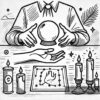lust meaning
lust :
desire, craving
noun
▪ She felt a great lust for success.
▪ She felt a strong desire for success.
▪ His lust for power was evident.
▪ His strong desire for power was clear.
paraphrasing
▪ desire – craving
▪ yearning – strong craving
▪ passion – intense desire
▪ appetite – desire for something

lust :
crave, desire
verb
▪ He lusted after fame.
▪ He desired fame very much.
▪ She lusted for adventure.
▪ She desired adventure greatly.
paraphrasing
▪ crave – desire intensely
▪ yearn – strongly desire
▪ desire – want strongly
▪ covet – wish to have
Pronunciation
lust [lʌst]
The word is pronounced as 'lust' with a short 'u', rhyming with 'trust'.
Common phrases and grammar about lust
lust - Common meaning
noun
desire, craving
verb
crave, desire
Part of Speech Changes for "lust"
▪ luster (noun) – shine or brightness
▪ lustful (adjective) – having strong sexual desire
Common Expressions with "lust"
▪ feel a lust for – have a strong desire for
▪ lust for success – strong desire for success
▪ control one's lust – manage one's strong desire
▪ satisfy a lust – fulfill a strong desire
Important examples of lust in TOEIC
Vocabulary examples from the TOEIC test
In TOEIC vocabulary questions, lust is used to indicate a strong desire, often in personal or emotional contexts.
Example of a confusing word: list (to make a record)
Grammar examples from the TOEIC test
Lust is typically used as a noun in TOEIC questions, meaning it functions as the subject or object in sentences.
lust
Idioms and fixed expressions in TOEIC
lust drive
a strong desire that motivates actions
burning lust
an intense desire, often emotional
Differences between similar words and lust
lust
,
desire
differences
lust is often a stronger, more intense desire, frequently of a sexual nature, while desire can be for anything and varies in intensity.
lust
,
craving
differences
lust is typically more intense and often associated with sexual desire, while craving can refer to an intense desire for any strong feeling or substance.
Words with the same origin as lust
The origin of lust
The word 'lust' comes from Old English 'lust', meaning 'desire'. It's been used since the 9th century to denote strong desires or cravings.
Word structure
The analysis of the word's composition is unclear.
Words with the same origin
The word's root is unclear or difficult to confirm.






